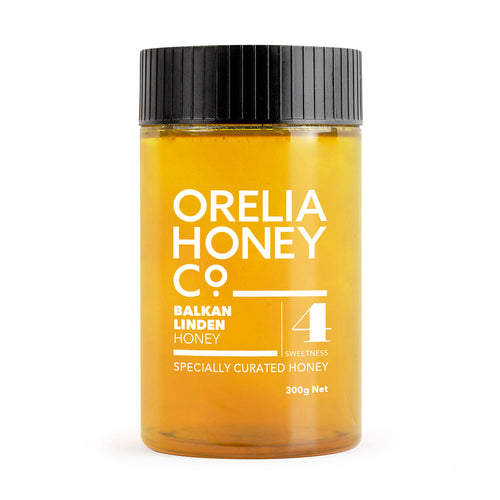Can Manuka Honey Help with Hay Fever? Find Out How!
Struggling with hay fever or allergies? Sneezing, itchy eyes, and congestion can ruin your day, but Manuka honey might offer natural relief! Research suggests honey could help regulate your immune response and soothe symptoms. Here’s why Manuka honey stands out:
✅ Anti-inflammatory & antimicrobial properties – Helps calm allergic reactions
✅ May ease hay fever symptoms – Could reduce sneezing, congestion & itchy eyes
✅ Soothes sore throats – Great for postnasal drip and irritation
✅ Backed by research – Studies show honey may enhance allergy relief
How Manuka Honey May Help with Hay Fever and Allergies
When we think of allergies, hay fever is often the first that comes to mind - especially during peak summer when pollen levels are high. Symptoms like sneezing, runny eyes, and congestion can make life miserable. However, hay fever can start as early as March for those allergic to birch pollen. Allergies don’t stop at hay fever either; conditions like eczema and asthma can be a year-round struggle. But could honey - especially Manuka honey - offer natural allergy relief? Let's explore the benefits.
Can Honey Help with Hay Fever?
Honey has long been considered a natural remedy for allergies, and scientific research supports its potential benefits. A 2013 Malaysian study found that people with allergic rhinitis (including hay fever) who consumed honey daily alongside allergy medication experienced greater symptom relief compared to those who only took conventional medicine. Researchers believe honey’s anti-inflammatory and immune-modulating properties may help soothe allergic reactions.
Some research suggests that honey may help regulate the immune system’s response to pollen, reducing sneezing and itchy eyes. While more studies are needed, incorporating honey into your daily routine could be a simple, natural way to manage symptoms.
Why Choose Manuka Honey for Allergies?
If you’re considering honey for hay fever relief, Manuka honey might be the best option. Known for its potent anti-inflammatory and antimicrobial properties, Manuka honey could provide additional benefits beyond regular honey. Some research even suggests it may help with a specific type of allergic rhinitis triggered by fungal spores. Additionally, if throat irritation is one of your hay fever symptoms, Manuka honey can be soothing in a warm drink.
Managing your Hay Fever symptoms
A word of caution, though – it’s important to manage your hay fever symptoms well, particularly if you also have asthma. Hay fever symptoms can be a trigger for a potentially life-threatening asthma attack, so make sure you follow the advice from your doctor or pharmacist to stay on top of symptoms – don’t rely on alternative ways to manage hay fever if you have asthma as well.
Dr Hilary Jones' Hay Fever Hacks
Doctor Hilary Jones, our honey expert, shared his thoughts on managing and relieving your symptoms of Hay Fever.
“Many people are rejoicing as the weather heats up and sunny days become a more common occurrence - for the coming weeks at least.
“Many of us that is, except those of who suffer from seasonal hay fever. With symptoms including sneezing or a runny nose. Itchy or watery eyes and in some cases even headaches and sore throats, hay fever can stop you in your tracks if you are badly affected.
“Modern-day pollen monitoring is now very good, so much so that you will often hear the pollen count given on the day’s weather forecast.
“Thankfully there are many ways you can manage hay fever this Summer. From natural and more alternative remedies, to the more common and well-used over the counter solutions.”
1. If you suffer badly from hay fever then it may be best to avoid going out in the early morning and early evening, which is when the pollen tends to rise into the sky and then fall to the ground later on as the air cools.
2. A simple barrier like sunglasses, Vaseline in the inside of your nostrils, or changing the setting your car’s air controls to recycle air will all help reduce the amount of pollen that gets into your eyes and nose.
3. Many pet owners may be surprised to hear the doctor may also recommended washing your dog after a walk too, as they can carry pollen on their coats.
4. The same goes for going to bed. If you’ve had your windows open in the day then pollen may have settled on your pillow. Turn it over, or better still, swap your pillowcase to reduce the chance of this affecting you.
5. Some people do recommend local honey for hay fever based on the notion that the pollen in honey can help desensitise you to it. There is mixed evidence on this but if it works for you then I would certainly not be against it.
“In fact honey in general – of all varieties - can be good at this time of year if you are experiencing a sore throat as a result of hay fever. Honey is very good at soothing and a spoonful either in the morning or at night could help.”
"I hope you get to enjoy this better weather we are having and until next time stay safe."
Soothe Hay Fever Sore Throats with Manuka Honey
Postnasal drip - a common hay fever symptom - can cause throat irritation and frequent swallowing. Manuka honey may help soothe this discomfort. Manuka Doctor’s Immune Defence Syrup and Manuka Lozenges, enriched with Vitamin B12 and Zinc, are EFSA-approved for immune support and may help ease allergy-related throat irritation.
Final Thoughts
While honey, particularly Manuka honey, may offer some relief for hay fever symptoms, it’s important to follow your doctor’s advice - especially if you have asthma, as hay fever can trigger serious attacks. Consider incorporating Manuka honey into your daily wellness routine and see if it makes a difference for your allergy symptoms.
For high-quality Manuka honey and immune-supporting products, explore the Manuka Doctor range today!


